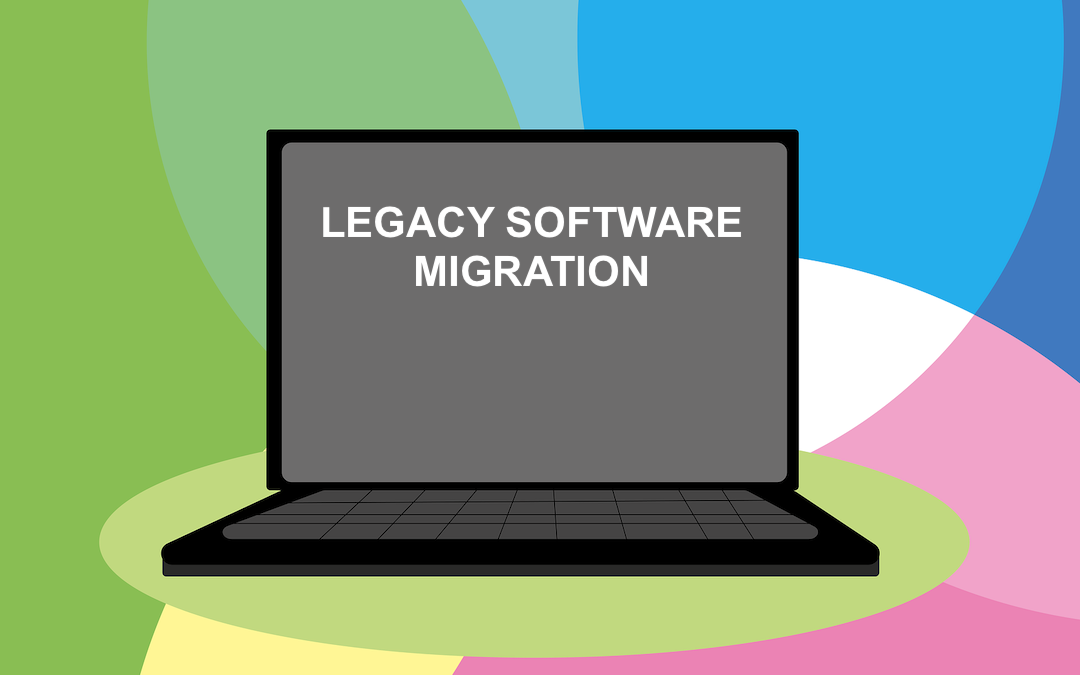
Why Should Your Business Consider Legacy Migration?
It is impossible to exaggerate the significance of legacy software migration in today's quickly changing digital ecosystem. Softacom knows how important it is for companies to replace antiquated systems to maintain long-term viability, competitiveness, and business continuity.
Understanding Legacy Systems and Persistence
Define Legacy Software
Legacy software refers to older digital solutions that, while functional, lack the efficiency, scalability, and security aspects of more recent systems. These systems are frequently distinguished by:
- Antiquated architectures
- Archaic programming languages
- Limited compatibility with modern platforms
Identifying and Transforming Legacy Systems
The process of identifying and transforming legacy systems involves a thorough examination to understand the complexities of each application. This includes:
- Underlying technologies
- Dependencies
- Important capabilities
Such detailed analysis enables the development of customized migration strategies that address the specific challenges and intricacies of each legacy system.
Eliminating Complexities of Outdated Systems
Transforming legacy systems eliminates the complexities and limitations of outdated, locally deployed software. The focus areas include:
- Enhancing efficiency
- Improving scalability
- Strengthening security
- Ensuring seamless integration with modern technologies and platforms
Current Trends and the Need for Migration
The need for legacy modernization has increased due to recent market developments and technical improvements. Businesses that fail to replace outdated software risk falling behind their rivals because legacy systems often hinder:
- Flexibility
- Innovation
- Responsiveness to changing market conditions
Strategic Support
In the current digital era, updating outdated software is critical for growth and competitiveness. This involves providing:
- Strategic support
- Comprehensive migration techniques
- Creative solutions tailored to meet the unique requirements and objectives of every customer
Challenges with Legacy Systems
Limited Scalability
Legacy systems often struggle to accommodate the increasing workload and traffic demands of modern businesses. These systems were typically designed to handle specific capacities, which may have been adequate at the time of implementation but fall short in today’s dynamic environment. As businesses expand and evolve, legacy systems may face:
- Performance issues
- Downtimes
- Degraded user experience
Security Risks
The vulnerability of older systems to security breaches is one of the most urgent issues. These systems are open to attacks since they frequently don't have the upgrades and fixes needed to protect them from contemporary cyber threats. Malicious actors can easily take advantage of the environment created by antiquated security mechanisms and the lack of vendor support.
Reduced Adaptability
Legacy systems are inherently rigid and resistant to change. Their outdated technology stack and lack of compatibility with modern tools and frameworks limit the organization’s ability to:
- Innovate
- Adapt to emerging trends
This reduced adaptability hampers growth and puts businesses at risk of falling behind competitors who leverage cutting-edge technology to gain a competitive edge.
Legacy Software Modernization
Specializing in legacy software modernization involves offering three key approaches to migration:
Hosting Migration
This approach involves quick expansion of access by migrating legacy systems to modern hosting environments, such as cloud platforms. It enables:
- Improved scalability
- Enhanced reliability
- Better fault tolerance
Platform Rebuild
Rebuilding legacy platforms can enhance flexibility, functionality, and overall performance. This approach is ideal for businesses seeking significant improvements in their digital infrastructure.
Full Refactoring
For legacy systems requiring substantial changes in code, logic, and functionality, full refactoring services are offered. This comprehensive approach ensures that the migrated systems meet modern standards and requirements.
Benefits of Technology Migration and Legacy Modernization
Migrating from legacy software brings numerous benefits to businesses:
Improved Scalability
Modernized systems can scale effectively to handle increased workloads and user demands.
Enhanced Security
Upgraded systems benefit from improved security features, protecting sensitive data and mitigating cyber threats.
Data Confidentiality
Modern platforms ensure data confidentiality and compliance with regulatory standards.
Automation
Automated processes streamline operations, reduce manual errors, and improve overall efficiency.
Cost Savings
Reduced hosting and support costs lead to significant savings over time.
Challenges of Legacy Migration
Assisting businesses in navigating the challenges associated with legacy migration involves handling:
- Planning
- Risk assessment
- Fear of change
- Design complexities
- Compatibility issues
Navigating Complexities
Handling the complexities of planning, risk assessment, and design ensures compatibility with modern systems, making the migration process smooth.
Tailored Solutions
Create custom strategies to minimize disruptions during migration, focusing on the specific needs of your business.
Strategic Planning
Emphasizing detailed planning to mitigate risks ensures a seamless transition to modern platforms.
Risk Assessment
Thorough risk assessments address security, compatibility, and performance issues, proactively managing potential problems.
Change Management
Providing change management strategies and training helps overcome resistance, enabling your team to adapt to new systems.
Design Optimization
Optimizing system design for efficiency, scalability, and user experience enhances your software using modern technologies.
Compatibility Solutions
Custom interfaces and compatibility testing ensure seamless integration, making sure your legacy systems work well with new technologies.
Maximizing Benefits
Focusing on business continuity, cost-effectiveness, and compliance delivers measurable value and success through migration services.
Conclusion
Legacy software migration is a complex yet essential process for businesses aiming to stay competitive and thrive in the digital age. Professional services and expertise in legacy modernization ensure a seamless and profitable migration experience. Partnering with Softacom for legacy migration is a strategic investment in future-proofing your business and unlocking new opportunities for growth and success.
Share this post
Leave a comment
All comments are moderated. Spammy and bot submitted comments are deleted. Please submit the comments that are helpful to others, and we'll approve your comments. A comment that includes outbound link will only be approved if the content is relevant to the topic, and has some value to our readers.

Comments (0)
No comment